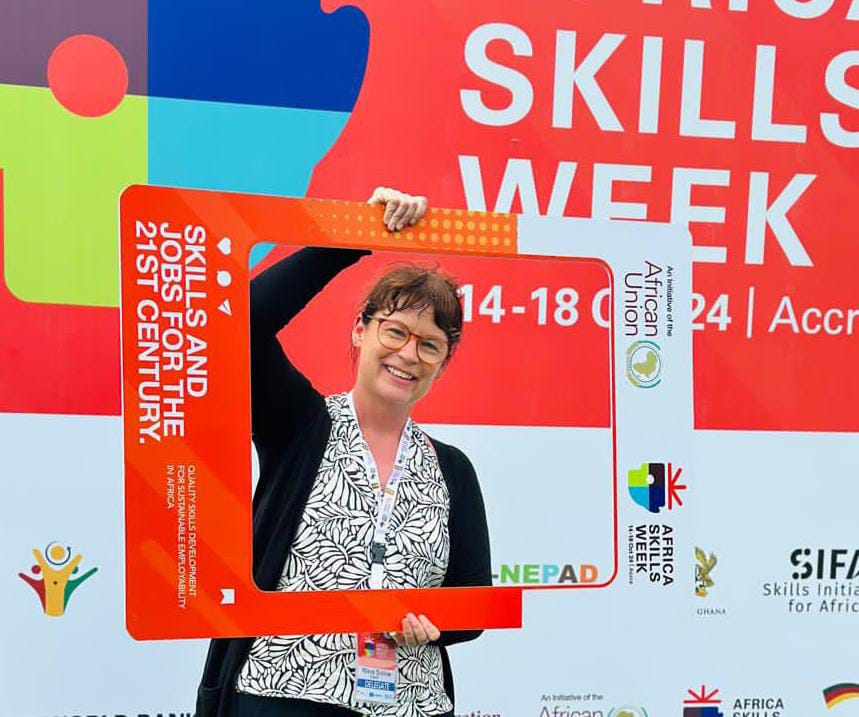adverts
“TVET must be Africa’s priority for job creation.” GIZ Programme Manager urges
Sabine Klaus, Programme Manager for Skills Initiative for Africa at GIZ, has called on African leaders to prioritise Technical and Vocational Education and Training (TVET) to address unemployment by creating practical job opportunities for graduates.
She emphasised that TVET must be made appealing to parents and children, as private sector demand for TVET graduates is high across the continent.
Her remarks came during the Africa Skills Week Summit in Accra, which brought together over 600 delegates from across Africa to discuss skills development and youth empowerment.
adverts
The five-day event, which ran from October 14 to 18, was organised by the African Union (AU) in partnership with the Government of Ghana. Themed “Skills and Jobs for the 21st Century: Quality Skills Development for Sustainable Employability in Africa,” the summit aligns with the AU’s Agenda 2063, which focuses on building a resilient and transformative educational system across the continent.
Speaking to Puretvonline.com, Sabine Klaus highlighted the gap in TVET education in Africa, noting that nearly 80%–90% of African countries do not fully integrate TVET into formal or informal sectors.
She stressed the need for governments to make TVET a priority to meet the growing demand from private industries.
“TVET should be the main focus of African governments if we want to create more practical jobs. Private sectors are eager to hire TVET graduates, but we need to make it more appealing and accessible to our youth,” Madam Sabine Klaus said.
She also urged the private sector to collaborate by offering internships to TVET students, allowing them to gain real-world experience and increasing their chances of employment upon graduation.
The Africa Skills Week Summit includes a youth summit and study tours designed to equip young Africans with essential skills for economic growth and manufacturing, reinforcing the critical role of TVET in shaping Africa’s future workforce.


